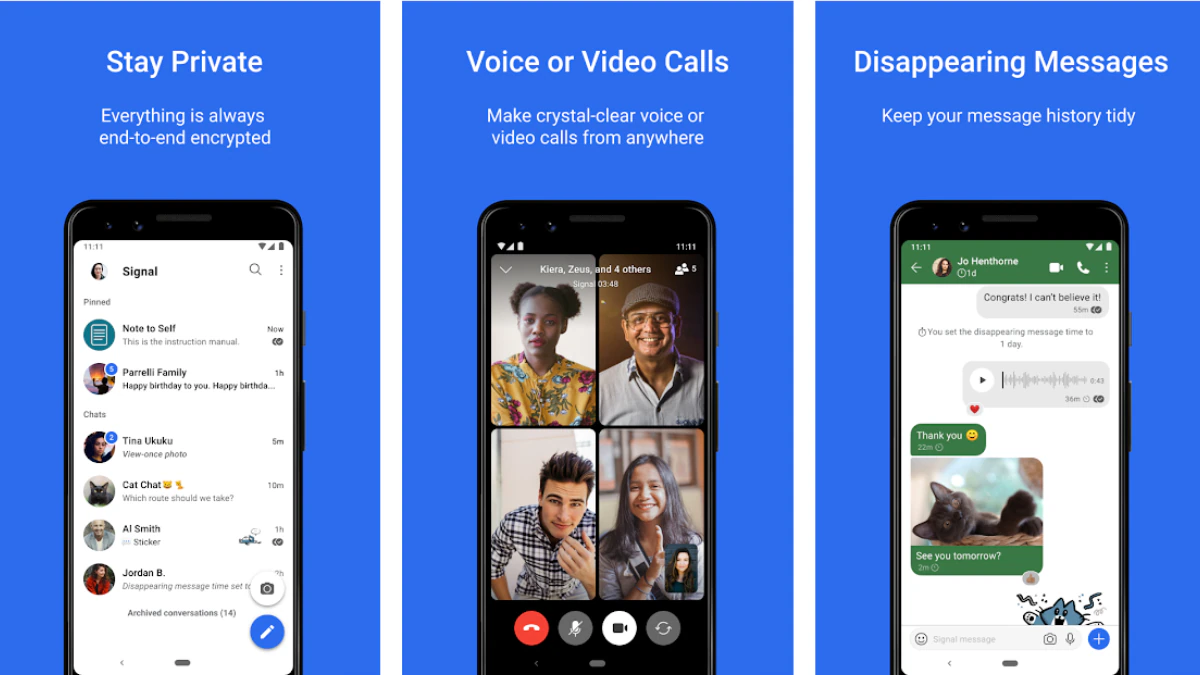In a world where data privacy is increasingly threatened, choosing the right messaging app is more critical than ever. One name that continues to rise above the rest is Signal—a secure messaging platform trusted by millions, including privacy advocates, journalists, and even tech experts like Elon Musk and Edward Snowden. But what exactly is Signal, and just how secure is it?
What is the Signal Messaging App?
Signal is a free, open-source, encrypted messaging app developed by the non-profit Signal Foundation. It allows users to send text messages, voice notes, media files, and voice/video calls—just like WhatsApp or Telegram—but with a strong focus on end-to-end encryption and privacy.
Available on Android, iOS, Windows, Mac, and Linux, Signal requires only a phone number to register. It does not collect your data or store your messages on its servers.
Key Features of Signal:
- End-to-End Encryption: All messages, calls, and shared media are encrypted by default.
- Open Source Code: Anyone can inspect Signal’s code for security flaws or backdoors.
- Self-Destructing Messages: Set messages to disappear after a chosen duration.
- No Ads, No Trackers: Signal does not monetize your data. Period.
- Group Chats and Video Calls: Secure group communication for personal or business use.
How Secure is Signal?
Signal is considered one of the most secure messaging apps in the world. Here’s why:
1. End-to-End Encryption by Default
Signal uses its own Signal Protocol, which has become the gold standard for encryption. This means that only the sender and the receiver can read the messages. Not even Signal can decrypt them.
2. Minimal Data Collection
Signal collects almost no data. Unlike WhatsApp or Facebook Messenger, Signal doesn’t store metadata like who you messaged or when. According to its privacy policy, Signal only keeps your phone number and the last time you connected to the app.
3. Independent Audits and Transparency
Signal’s code is open source and regularly audited by independent security experts. This transparency builds trust and helps identify vulnerabilities quickly.
4. No Cloud Backups by Default
Unlike other messaging apps that store chat backups in cloud services (which can be hacked or accessed by authorities), Signal keeps everything locally on your device—and it’s all encrypted.
5. Safety Numbers for Contact Verification
You can verify the identity of contacts using safety numbers. This ensures you’re not communicating with an impersonator or under a man-in-the-middle attack.
Who Uses Signal?
Signal has become a go-to app for:
- Privacy-conscious users
- Journalists and whistleblowers
- Activists in high-risk regions
- Everyday users want secure communication
Notable endorsements from Edward Snowden, Elon Musk, and Jack Dorsey (Twitter’s co-founder) have only boosted Signal’s credibility.
Signal vs Other Messaging Apps
Signal vs Other Messaging Apps
| Feature | Signal | Telegram | |
|---|---|---|---|
| End-to-End Encryption | Yes (default) | Yes (default) | No (only in Secret Chats) |
| Open Source | Yes | Partially | Partially |
| Collects User Data | Very minimal | Yes | Yes |
| Ads or Monetization | No | No (for now) | No (but data collection exists) |
Final Verdict: Is Signal Right for You?
Signal is an excellent choice if you’re looking for secure, private, and reliable communication. It combines a user-friendly experience with some of the most advanced security features in any messaging app today.
Whether you’re a journalist handling sensitive information or just a regular user tired of surveillance capitalism, Signal prioritizes your privacy—and that makes it a must-have app in today’s digital age.
For more tech news and insights, visit Rwanda Tech News, and explore similar topics and trends in the world of technology.



